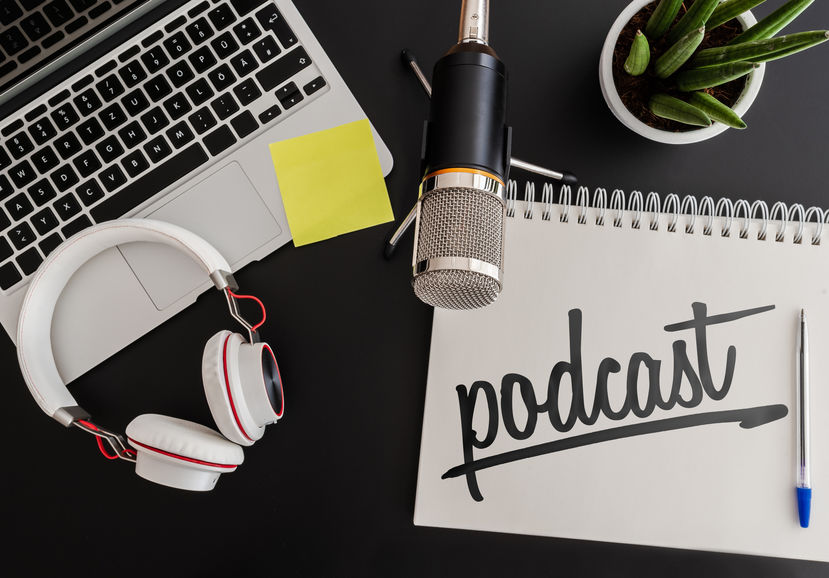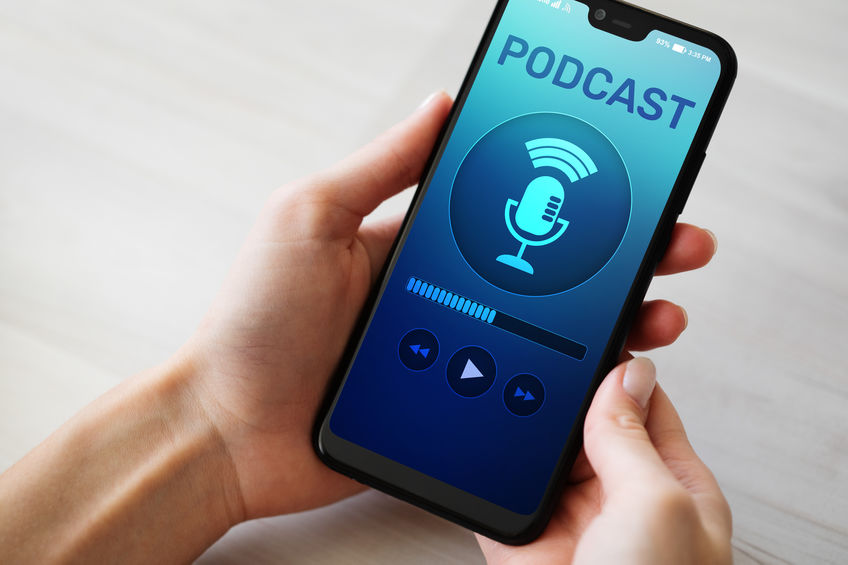
The number of podcasts is on the rise. Podcasts, which are digital and conversation-based series, are popping up in countless categories. Whether you are considering starting your own podcast or being featured as a guest on an established show, a podcast strategy should be an essential component of your marketing communications plan. Here’s why.
Podcast Statistics

- Podcasts attract 104 million listeners every month. If you’re still on the fence about whether podcasts are a vital communication tactic, this statistic makes it clear that listeners are engaging with podcasts on a consistent basis. They represent a great opportunity to connect with audiences and tap into the mediums they already use.
- For every podcast, there are 750 blogs and 29 YouTube channels. Given the overwhelming frequency of blogs and video, podcasts provide a competitive edge to capture the attention of prospects, customers and other industry experts using a less crowded marketing channel.
- Seventy-five percent of podcast listeners tune in to learn new things. Content is successful when it shares valuable information provided by experts in their field. According to B2B podcasting expert Dr. Jeremy Weisz of Rise25, podcasts are “a great way to maintain personal and professional development because listeners can learn and ask questions from people who are at the top of the industry.” Ensure your podcast content showcases thought leadership and is aligned with your brand to increase visibility and credibility.
- Podcast listeners spend more time listening to content rather than reading it. In fact, more than 80 percent of podcast listeners spend at least seven hours a week listening to podcasts. Listeners welcome the accessibility of podcast content while doing other activities such as driving, exercising or performing mundane tasks or household chores. When developing topics for podcasts, embrace long-form content by providing comprehensive discussions, best practices and solutions in areas. If hosting your own show, diversify content across multiple industries by interviewing experts from within and outside your organization.
- Podcast listeners are 20 percent more likely to connect with a brand on social media where they can continue conversations and interact with your business after the episode ends. Podcasts are a useful lead generation tool. When developing podcast content, include a call to action and easy access to contact information. Share your podcast across multiple channels and route listeners back to your website or social media profiles to promote interaction.
- If you include storytelling in your podcasts, you can increase your listeners’ engagement by 300 percent. “Storytelling should aim to either inspire, educate, entertain—or all three,” says writer and podcaster Joey Held in What Businesses Need to Know Right Now. “Customers have options for almost any type of business or product they are seeking. Nowadays, they’re going to look for the one that appeals to them the most. Storytelling can lead them to you. It’s not strictly about price these days, but also connection.” Storytelling is a great way to build the emotional impact of your messaging. Stories captivate audiences in a whole new way, regardless of what the industry is. When you communicate your company’s values to your audiences, it humanizes and increases the appeal and significance of your brand.
Create Avenues of Connection

More of today’s businesses are turning to podcasting to increase visibility and drive high-quality leads into their sales funnels. Providing numerous marketing opportunities to companies and listeners alike, “Podcasts offer a Swiss army knife of benefits,” Dr. Weisz says. Podcasting isn’t necessarily difficult. All you need to get started is a host, a mic and a computer. A little strategic planning goes a long way to ensure your success. Just like with any marketing initiative, it’s important to define your audience, plan your messaging, schedule your distribution and decide who is ultimately responsible for planning and marketing your podcast. It may be intimidating at first, but the more you do it, the easier it gets. When focusing on valuable, relevant and compelling content, podcasts are a powerful marketing channel that cuts through the digital clutter.
